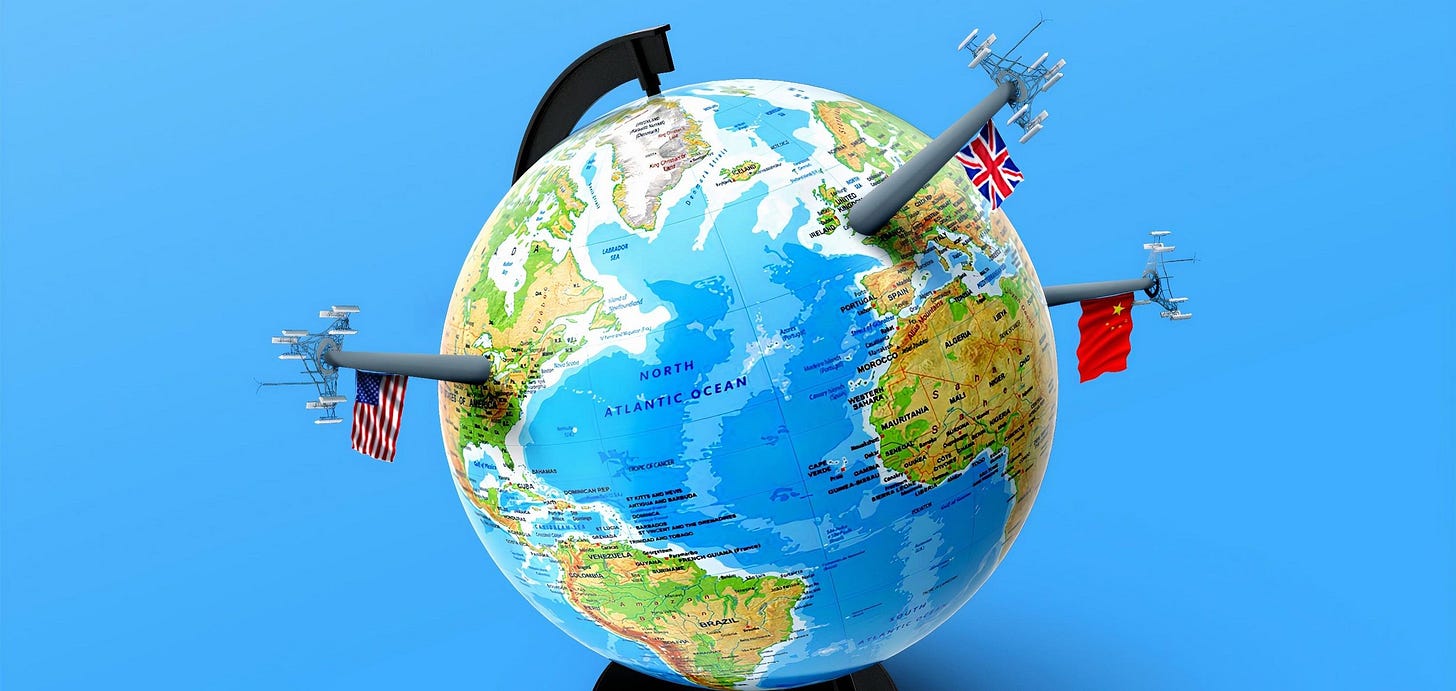Monday this week, I wrote about how Murdoch’s flagship paper, The Australian, consistently seeks commentary from experts it believes are qualified geopolitical analysts.
My Substack piece criticised The Australian and who it rolls out as expert commentators. In a piece by the University of Melbourne’s Professor Timothy Lynch, attacked Ireland’s foreign policy, reflecting a deeply troubled endorsement of Israel’s war crimes – attempting to delegitimise Ireland’s principled stance while failing to grapple with the moral realities of geopolitics.
Well, again, the paper should be embarrassed by who it’s chosen as expert geopolitical analysts and commentators.
Today, The Australian ran a piece by Gedaliah Afterman and Anthony Bergin. Afterman is the head of the Asia policy programme at the Abba Eban Institute for Diplomacy and Foreign Relations at Reichman University, while Bergin is a senior fellow at Strategic Analysis Australia. Now, just because you’re a surgeon doesn’t make you a good surgeon. There are surgeons and there are surgeons, and there are tilers and there are tilers. Afterman and Bergin fall into the ‘There are tilers’ category.
The Afterman and Bergin’s piece argues for a drastic recalibration of Australia’s Middle East policy, aligning uncritically with Israel while marginalising the plight of Palestinians and the broader geopolitical complexities. The article typifies the problem with rolling out ill-informed commentators, whose superficial grasp of geopolitics panders to entrenched ideological narratives rather than promoting nuanced, informed debate.
Afterman and Bergin paint a picture of a Middle East in flux, where Israel supposedly emerges as the benefactor of shifting power dynamics. It’s a narrative that ignores the glaring realities on the ground: Israel’s decades-long occupation of Palestinian territories, the ongoing human rights abuses documented by international organisations, and the simmering discontent across the Arab world regarding Israeli policies.
Their assertion that the “fall of the Assad regime” and a “substantial weakening of Hezbollah and Iran” herald a shift in Israel’s favour is, at best, speculative and, at worst, a deliberate distortion of facts. Far from falling, Assad’s regime remains entrenched in Syria, supported by Russia and Iran. Hezbollah, while under pressure, continues to maintain significant influence in Lebanon and beyond.
The portrayal of these developments as a victory lap for Israel overlooks the broader regional instability that such power vacuums exacerbate.
Both Afterman and Bergin trumpet the Abraham Accords as a panacea for the region’s woes, ignoring that the agreements—brokered under heavy US influence—sidestep the key issue of Palestinian self-determination. While normalisation between Israel and certain Arab states might bring economic opportunities, it does little to address the fundamental grievances of Palestinians living under occupation. Framing the accords as a solution to the Gaza conflict, Afterman and Bergin reveal an appalling understanding of the deep-seated historical and political complexities that fuel the crisis.
What Afterman and Bergin’s article attempts is to urge Australia to adopt an overtly pro-Israel stance, claiming it would bolster regional stability and Australia’s strategic interests. However, their recommendation demonstrates a deeply flawed understanding of Australia’s foreign policy landscape and its potential role in the Middle East.
Australia’s history in the region isn’t unblemished. From its part in the Iraq War—based on the false premise of weapons of mass destruction—to its tacit support for policies that have exacerbated the plight of Palestinians, Australia has allowed itself to be used as a pawn in larger geopolitical games rather than as an independent actor with a principled stance.
The suggestion Australia should align with Israel to advance tech and maritime innovation or to counter disinformation is opportunistic politicking. Their proposal ignores the moral and ethical implications of siding with a state committing systematic human rights violations and war crimes. Would Australia want to tarnish its international reputation further by endorsing policies that flout international law and undermine the rights of an entire people?
What’s disturbingly egregious about the article is its erasure of Palestinian suffering. Afterman and Bergin suggest support for Palestinians is “empty rhetoric” that won’t alleviate their plight. The callous dismissal of the Palestinians’ struggle for basic rights and dignity is representative of a broader trend in Western commentary on the Middle East: a deliberate sidelining of Palestinian voices and perspectives to promote a narrative absolving Israel of accountability.
Their framing of Australian support for Palestine as a retreat from the region isn’t just misleading—it’s dishonest. Supporting Palestinian rights isn’t about taking sides in a zero-sum game; it’s about upholding international law and recognising the humanity of all people. Referring to it as “sectarian interests,” Afterman and Bergin show their bias and profound misunderstanding of the principles that should underpin Australian foreign policy.
Afterman and Bergin are tied to institutions with pro-Israel leanings. Their arguments are the product of a well-documented effort to shape public opinion in favour of Israeli policies. Their commentary is a disservice to readers, presenting a skewed perspective prioritising ideological alignment over intellectual rigour.
The Middle East is too complex, and the stakes are too high, for foreign policy to be guided by narrow, uninformed, and ideologically driven narratives.
Australia’s role in the Middle East shouldn’t be defined by an uncritical alignment with Israel or pandering obsequiousness. It should focus on supporting humanitarian efforts and advocating holding Israel to account for its genocidal mania.
Australia must embrace a foreign policy that reflects its values and commitments to human rights.





I don’t need to come to work that you’re a fuck wit. c
Simply not willing to over come the paywall in order to read the tripe that they put out there so I haven't read the article in question as such it wouldn't be fair to criticize it.
One advantage the paywall is that the majority of readers will have already bought into the prevailing ideology being pursued by the cabal of Murdoch editors - paid subscribers are less likely to criticize what they've read while it immediately reduces the number of potential criticizers.
Ever noticed how paywalls go up on Substack in order to deal with dissenting opinions.